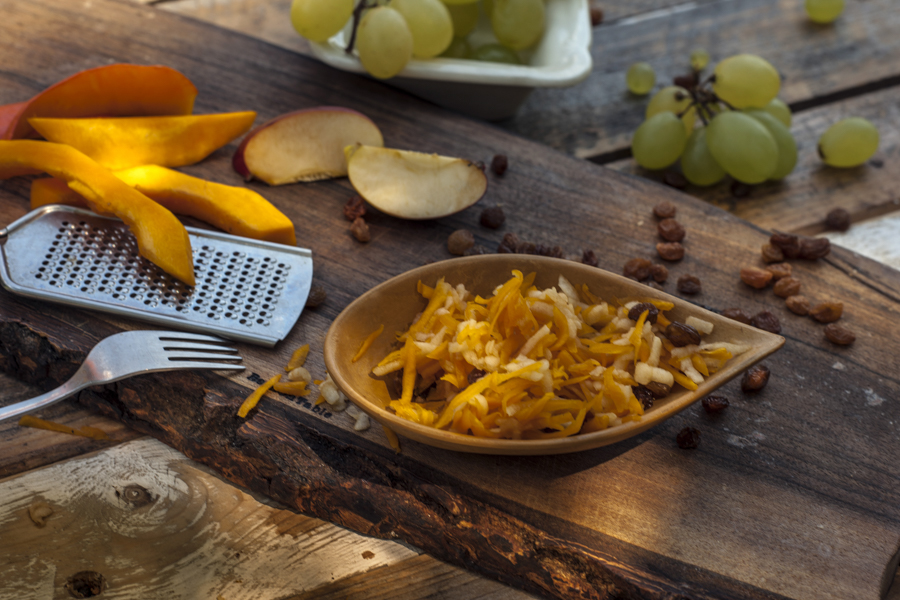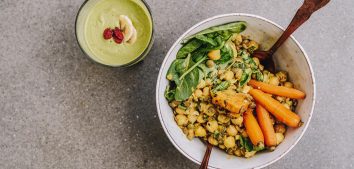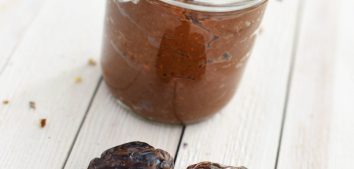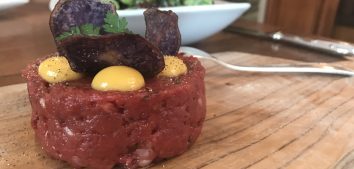
Sportspeople – vegetarians?
More and more sportspeople claim to be vegetarians or even vegans. For the time being, they make up a tiny percent of the sports community, but I have an impression that there will be more and more of them soon.

What helps to become a vegetarian is the knowledge about industrial livestock farming. Cattle, pigs and poultry are kept in closed places, fed on artificial feed, given antibiotics and hormones. The stress they live under is not without significance for health. Some people stop eating meat for ethical reasons, others because they lost confidence in the quality of meat products. There are those who found out that they feel better after they stopped eating animal proteins.
I am not a vegetarian myself. My diet is dominated by vegetables and kasha, but I have not resigned from eating fish. I do not eat milk and eggs, because I do not tolerate them. That is why there are so many recipes including vegetable proteins on my blog.
I would not like to persuade you into a vegetarian diet, because it is a serious decision. Everyone should make it themselves, having learnt enough about the diet before, about its benefits and dangers. I am bringing up this topic, because I have spotted the fashion for being a vegetarian lately. Active people and professional athletes should deeply consider a potential change in their diet. A wrong one can result in lowering physical fitness and losing health gradually.
If you want to become a vegetarian, you should think of including those components in your diet that are usually present in foods from animals.
Protein
Vegetable proteins are of low quality. They do not contain essential amino acids, or contain a little of them, or the proportion is inadequate. Therefore, meals should be varied and include a lot of different vegetable proteins. Good sources of proteins apart from meat are: pulses, nuts, seeds, eggs, soy products (tofu, soy milk), grains (especially rye), amaranth, quinoa. Mixing beans with amaranth or quinoa gives us a complete protein. Generally, it is a good idea to mix the following products into one meal:
- pulses,
- grains and kasha, e.g. bread, pasta, rice, oats, cereals, cornflakes, rye, millet, quinoa, amaranth, hemp seeds,
- nuts and seeds, e.g. cashew nuts, almonds, sunflower seeds, sesame seeds, pumpkin seeds, pine nuts,
- soy products (be careful when suffering from hypothyroidism).
Sportspeople also replenish protein in their diet by taking protein supplements.
Vitamin B12
You should remember to include vitamin B12 in your diet as it is not actually present in vegetables. It is sometimes necessary to take supplements. You can eat products containing this vitamin, e.g. vegetable milk or cereals.
Calcium
Good sources of calcium are: poppy seeds, hazelnuts, pistachio nuts, sesame seeds, pulses.
Iron and zinc
It is best absorbed from meat products. Iron and zinc deficiency is connected with the risk of anemia. A lot of iron can be found in grains, pulses, green parts of vegetables, poppy seeds, pumpkin seeds, thyme, sesame seeds. Vitamin C helps to absorb iron better , that is why, it is recommended to take a vitamin C supplement for night.
A certain problem related to building a well-balanced vegetarian diet can be a volume of meals. An active person needs a lot of calories, but vegetable products are low-calorie products. For this reason, athletes sometimes take carb supplements to make up that difference.
Possible consequences of a vegetarian diet:
- tiredness, feeling bad, weight loss, poor recovering – in case of a wrong protein diet and too low intake of carbs,
- negative effects of consuming too much fiber – poor absorption of minerals. Recommended: fruit juice, dried fruits, alternating white and wholemeal bread,
Benefits of a vegetarian diet:
Reduced risk of: obesity, hypertension, type 2 diabetes, cancer, tooth decay, constipation and hemorrhoids.
Downsides of a vegetarian diet:
Increased risk of: anemia, rickets, osteomalacia, osteoporosis, diarrhoea, neurological disorders.
Since I stopped eating meat and poultry (I eat fish instead), I have been feeling lighter, I have had less trouble with digestion and I have been aware that my organism collects less toxins.










Comments No Comments
Join the discussion…